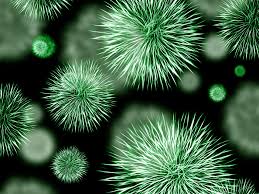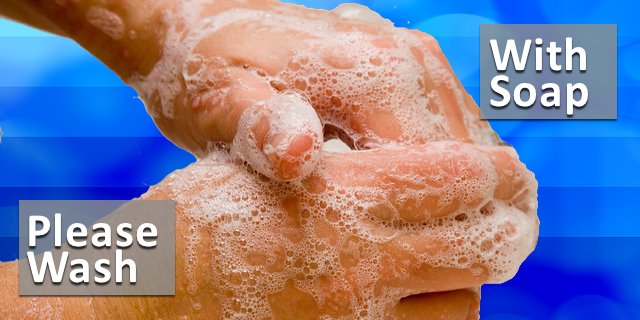Did you know that many people don’t wash their hands after using the bathroom? EWWWWWW!
So, who are these backsliders? You might one.
Is This Really a Problem?
Ninety-six percent of Americans say it is a good idea to wash up after bathroom time and 85% of parents intend to teach their kids to wash hands after using the toilet.
But, it’s not what people say; it’s what they do. In 2013, researchers watched and recorded the habits of 3,749 people in a college town, noting 1) if people washed, 2) how long they washed, 3) if they used soap and 4) if they dried their hands after washing. The results: 10.3% did not wash their hands at all after using the bathroom. Twenty-three percent used water but NO soap.
Time matters: clean hands require 15 seconds of rubbing with soap. In this study, researchers recorded hand washing as the time spent pre-rinsing, using soap (if used at all), rubbing and drying. Only 5% actually spent 15 seconds on the whole process. The average time spent washing hands was 6.27 seconds for men and 7.07 seconds for women.
Other studies confirm improper technique. A 2013 survey asked 1,047 people about hand washing habits. Seventy percent said that they didn’t use soap when washing up.
Why Is Proper Hand Washing Important?
 Germs. Viruses, parasites and bacteria on your hands spread to everything you touch. If you don’t wash, only wash with water or don’t wash long enough, germs stay on your hands. All day long, people touch their eyes, nose and mouth (the T-zone), allowing germs to enter the body. One study examined hand washing and T-zone contact among family medicine clinicians and their staff. It found that T-zone touching averaged 19 times in two hours. Only 9% followed the hand washing guidelines set by the CDC.
Germs. Viruses, parasites and bacteria on your hands spread to everything you touch. If you don’t wash, only wash with water or don’t wash long enough, germs stay on your hands. All day long, people touch their eyes, nose and mouth (the T-zone), allowing germs to enter the body. One study examined hand washing and T-zone contact among family medicine clinicians and their staff. It found that T-zone touching averaged 19 times in two hours. Only 9% followed the hand washing guidelines set by the CDC.
Here are a few of the tough germs let in by poor hygiene.
Norovirus accounts for almost half the stomach “flus” that occur. Symptoms include vomiting, diarrhea, and fever.
Cryptosporidium, a microscopic parasite causing a diarrheal disease, can be caught by touching surfaces that someone infected.
Clostridium difficile (C-Diff) is another bacterial illness. Symptoms? Diarrhea and colitis.
Adenovirus causes common colds, sore throats, stomach inflammation and even bladder infections. A person can “recover” from an adenovirus, yet continue spreading the virus for months.
Wash Your Hands!
Overall, proper hand washing cuts the number of people sickened by diarrhea by 31%, decreases diarrhea for people who are immune-compromised by 58% and lowers respiratory sickness by 16 to 21%.
Be the example! Here’s hand washing 101:
1) Wet hands with clean water.
2) Apply soap
3) Rub hands together, (especially around the nails) while singing the Happy Birthday song twice (15 seconds)
4) Rinse off the soap
5) Use a paper towel to turn off the water
6) Use that same paper towel to open the door. Dispose of the paper towel.
Use the paper towel to turn off the water and open the door—it helps keep your hands clean.
Pretty easy, don’t you think?
Just remember the 15-second (Happy Birthday song) + soap and water rule, and you may significantly lower your chances of getting sick.






Thanks for sharing useful article especially since it is now flu season. Hand washing. Everyone should wash their hands after using the toilet or handling a diaper. Washing your hands often, and at the right time, can have a big impact on your family’s risk for getting sick.
Thanks for sharing such valuable insights on this blog post. As mentioned in the blog, Germs. Viruses, parasites and bacteria on your hands spread to and from everything you touch and in these uncertain times with the coronavirus outbreak, it is extremely important for us to wash our hands and ensure that these viruses and bacteria are removed and hence they cannot spread further.